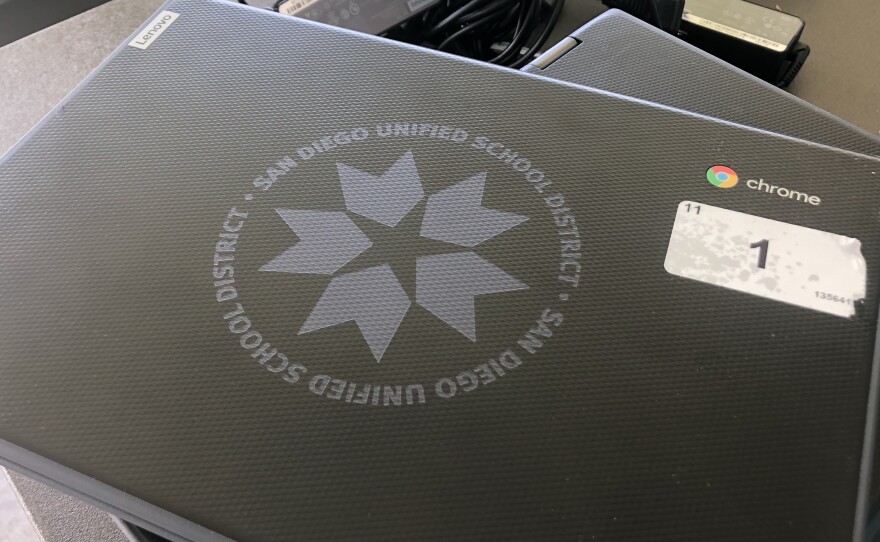San Diego hired a local community outreach organization — Pillars of the Community — to help eligible households take advantage of a new $3.2 billion federal program to lower the cost of broadband Internet service during the COVID-19 pandemic.
"This a tremendous opportunity to bolster our efforts to close the digital divide that leaves far too many San Diegans behind," said Mayor Todd Gloria. "We're one of the few cities to support this new federal program with a robust outreach campaign with trusted partners, such as Pillars of the Community, who can break down language barriers and enroll people on the spot."
The Federal Communications Commission's temporary Emergency Broadband Benefit program provides a benefit of up to $50 per month toward broadband service for eligible households and up to $100 per household toward a one-time purchase of a computer, laptop or tablet under certain rules.
Located in southeastern San Diego, the nonprofit Pillars of the Community is a community messenger working directly in the San Diego "Promise Zone," which comprises the city's most economically disadvantaged neighborhoods. Pillars will be partnering with at least a dozen other trusted community groups to sign up residents for the EBB benefit.
"The people closest to the pain are closest to the solution," said City Councilwoman Monica Montgomery Steppe. "For years, Pillars of the Community has been doing the work in our communities of concern, and I am glad to see Mayor Gloria prioritize the needs in my district, as we continue our fight to bridge the digital divide and equitably distribute funding and resources."
According to the city, an estimated 53,000 San Diego households have zero Internet access. The main goal of the local outreach campaign is to encourage and assist individuals to sign up for EBB by breaking down language barriers and providing technical assistance.
The outreach by Pillars will focus on southeastern San Diego, Barrio Logan, Mid-City, San Ysidro and other low-to-moderate income neighborhoods. Strategies will include presentations at schools and nonprofit organizations, outreach workers at community events with tablets to sign people up on the spot and a social media campaign. The goal is to reach 10,000 residents in two months.
"We're planning an aggressive outreach campaign to get as many San Diegans signed up for broadband as possible before the funding is gone," said Romelia Turner, Pillars of the Community's civic engagement program manager. "The need is there, we see it every single day as parents and students struggle to connect to the Internet. We're confident that we can get thousands enrolled quickly."
As part of its $60,000 contract, the firm will also direct households ineligible for EBB to the city's SD Access 4 All program providing free Wi-Fi at over 300 locations as well as mobile hotspots that can be checked out from certain libraries to provide free at-home internet service.
A household is eligible for EBB if one of its members meets at least one of the following criteria:
• Income at or below 135% of the Federal Poverty Guidelines or participates in certain assistance programs, such as SNAP, Medicaid or the FCC's Lifeline program;
• Receives benefits under the free and reduced-price school lunch program or the school breakfast program;
• Received a federal Pell Grant during the current award year;
• Experienced a substantial loss of income through job loss or furlough since February 29, 2020, and the household had a total income in 2020 at or below $99,000 for single filers and $198,000 for joint filers; and
• Meets the eligibility criteria for a participating internet service provider's existing low-income or COVID-19 program.
Apply at getemergencybroadband.org.






